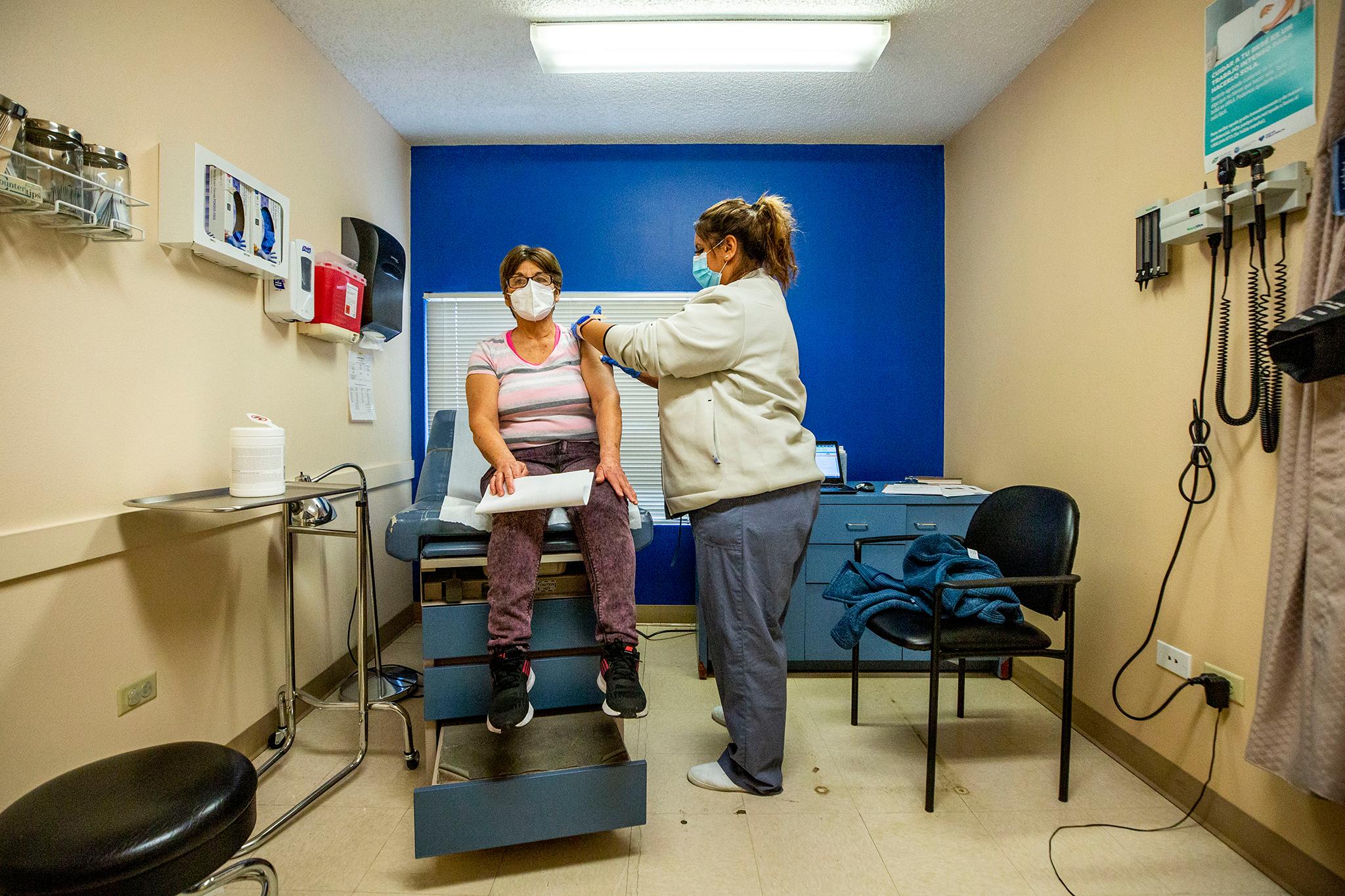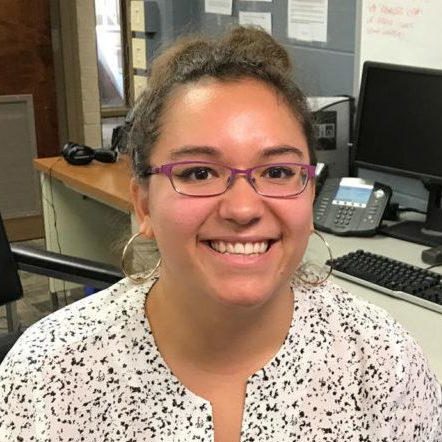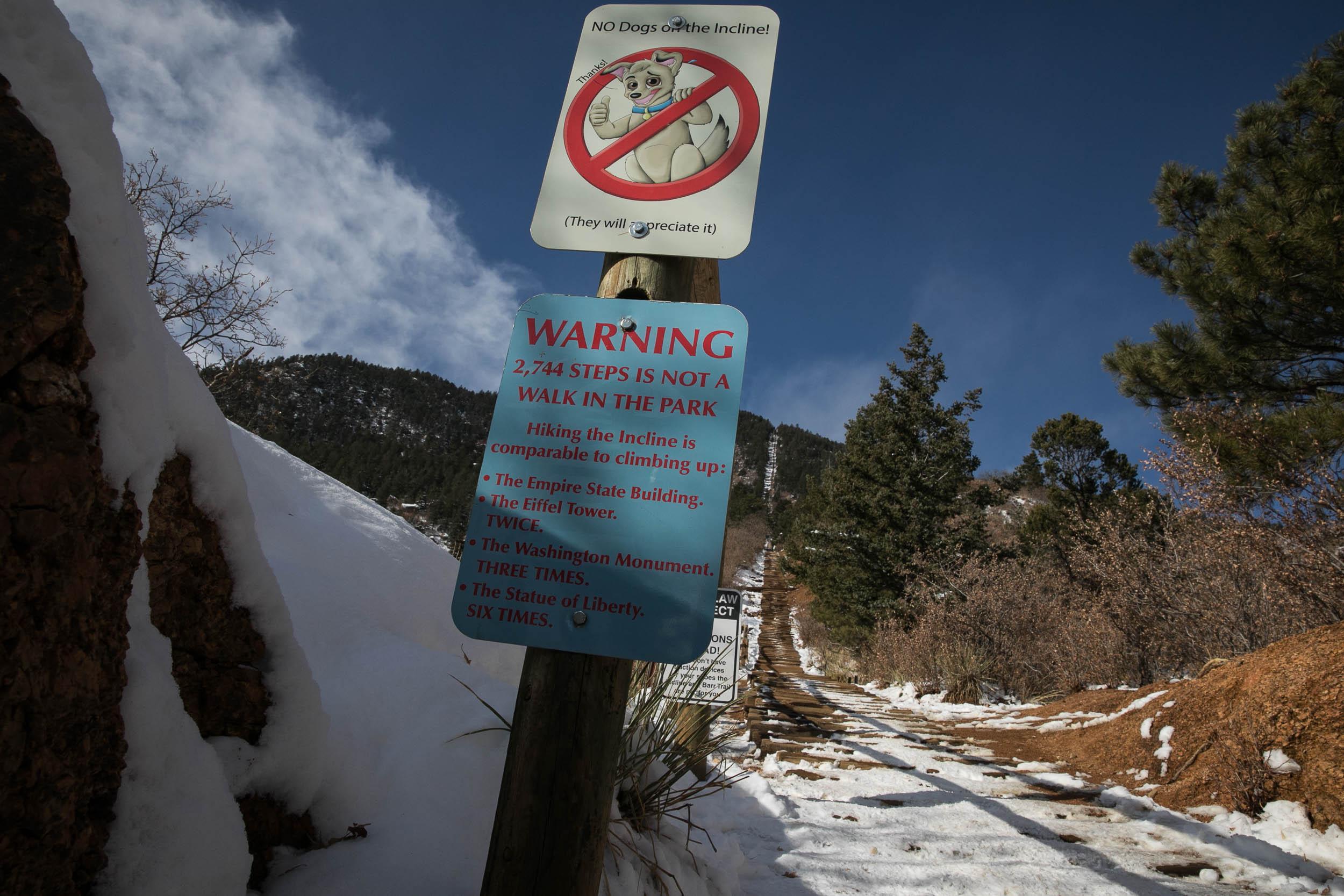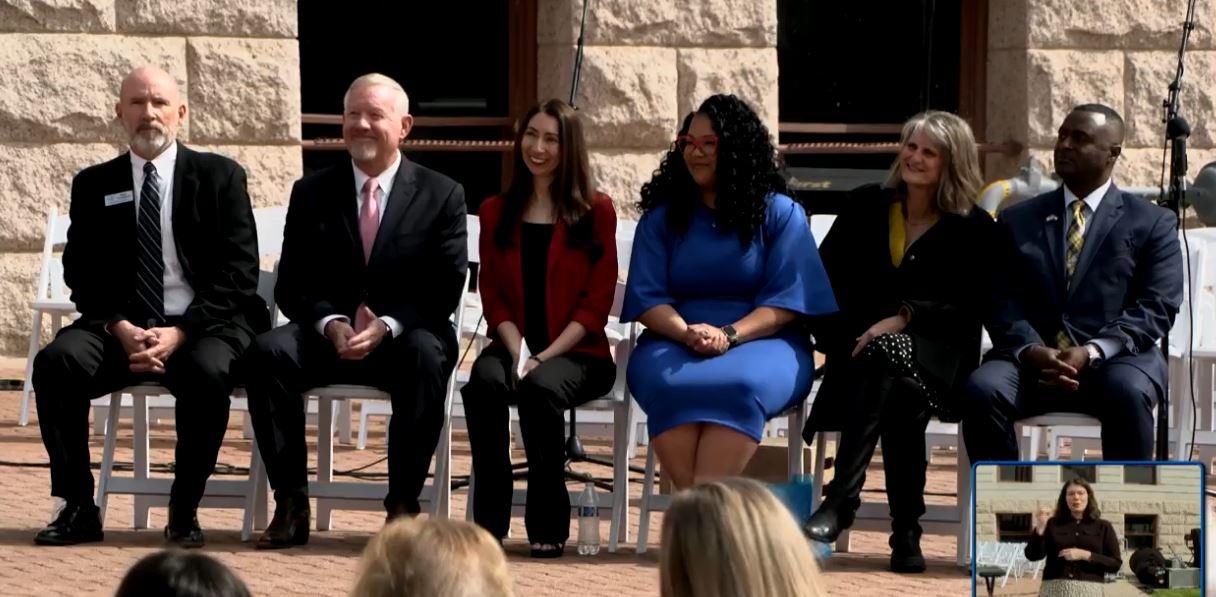
Community partners in El Paso County are helping to address COVID-19 vaccine access and equity through targeted clinics. This past weekend, more than 1,000 people in the county received their second dose of the COVID-19 vaccine at a clinic hosted by the county public health department and Servicios de la Raza, a statewide Latino advocacy organization.
Susan Wheelan, the public health director for El Paso County Public Health, said she worked at the clinic and saw the impact it had on people who attended.
"I observed the relief that was on people's faces, and some of the individuals even cheered at the second dose clinic," said Wheelan. "They were so appreciative and excited that they were receiving their second dose vaccine."
Julissa Soto directs statewide programs for Servicios de la Raza. She estimates that overall they've helped vaccinate around 2,000 Latinos in the county.
Partnerships are one way El Paso County Public Health is striving for broader access. A pop-up vaccine clinic at the end of February with Sevicios de la Raza was geared toward vaccinating people of color 65 and older. 900 people received vaccines at the clinic. UCHealth and Peak Vista also came together with local area churches and the public health department to vaccinate seniors of color. The public health department reported that those efforts at the end of last month resulted in 2,400 vaccinations overall.
Soto said she realized the biggest barrier for Spanish-speaking Latinos wasn't access to appointments, but rather the availability of information on coronavirus in Spanish. El Paso County Public Health translates its materials into Spanish, but Soto said it was important for the clinics hosted by Servicios de la Raza to have a culturally specific approach.
"I did make sure that the vaccination site that we put together had everyone on staff being bilingual, bicultural, and welcoming our community in a way that they will feel respected and valued," she said.
When Soto and others from the Servicios de la Raza signed people up for vaccine appointments, they also helped them get connected with other services, like mental health and immigration resources, and talked through people's concerns about the vaccine, including potential side effects.
For Wheelan, the clinics also helped strengthen the relationships between the organizations.
"We ate together, we laughed together, and we celebrated serving the public," said Wheelan. "That's something that's unique that sometimes you're not going to find at the drive-through mass vaccination sites, that type of camaraderie or those types of partnerships."
According to the county public health department's COVID-19 vaccine dashboard, 142,970 people have been vaccinated as of March 26. 5.87 percent of those people identified as Hispanic.
Fadi Youkhana, an epidemiologist with El Paso County Public Health, said solely using vaccination data broken down by race or ethnicity has limitations when trying to measure equity.
"One of the problems of evaluating that percentage fairly is the proportion of people that did not specify which race they are, or ethnicity, because that's not something that's required to report," said Youkhana. "We do use those percentages as a helpful metric in order to internally have those discussions to support our equity efforts, but we don't have a hardline percentage."
Youkhana and Wheelan both said the county's metrics for measuring improved equity include reducing barriers and increasing access to vaccinations, along with deepening partnerships like the one with Servicios de la Raza.
While Soto said she feels positive about the rate of Latino COVID-19 vaccinations in El Paso County, she said the state still has a long way to go.
"I feel frustrated because I wish I could do a clinic almost every day for the Spanish-speaking community but you know, I'm at capacity," said Soto. "I wish there were more models like what we did with El Paso County Public Health Department in smaller counties. I wish there were more clinics where we [would] call it 'a Latino clinic' so we know that it's for us and we're welcome."
Servicios de la Raza is planning an upcoming vaccine clinic in Mesa County, and looking at hosting clinics in Custer and Cheyenne counties, as well as in the Southwest part of Colorado.
*Editor's Note: This post has been updated to clarify that El Paso County Public Health translates its materials into Spanish.
Who Is Eligible To Get A Vaccine In Colorado Right Now:
- People age 50+
- People with high risk conditions
- High and moderate risk health care workers and first responders
- Correctional workers
- Funeral services
- PK-12 educators and staff
- Child care workers in licensed child care facilities
- Frontline essential workers*
- Continuation of operations for state government and continuity of local government
Map: Where In El Paso County You Can Get Vaccinated
Make A Vaccine Appointment In El Paso County
- Follow Servicios de La Raza on Facebook or check their website for information about upcoming clinics
- Broadmoor World Area: Make an appointment at the drive-thru community vaccination site call 720-263-5737
- Centura: Make an appointment or call 866-414-1562
- El Paso County Health: Make an appointment for an upcoming clinic
- Kaiser: Make an appointment at a Kaiser clinic (you don't need to be a member) or call 1-855-550-0951
- King Soopers: Make an appointment
- Matthews-Vu Medical Group: Make an appointment or call 719-474-7380
- Optum and Mountain View Medical Group: Make an appointment or call 719-463-5650
- Passport Health: Make an appointment or call 719-387-5528
- Peak Vista Community Health: Make an appointment or call 719-344-6500
- Safeway: Make an appointment
- UCHealth: Make an appointment at an upcoming clinic or call 720-462-2255
- Walgreens: Make an appointment or call 1-800-925-4733
- Walmart: Make an appointment







